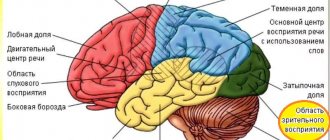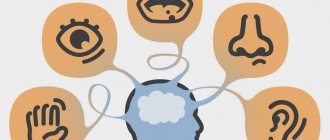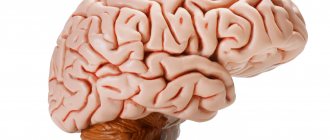The information age provokes the emergence on the Internet of ever new methods for developing memory and simulators for all levels of training. The most important thing in this case, of course, is the regularity of training: the more often you exercise, the more effective the result. However, this becomes a stumbling block on the path to developed memory - the modern pace of life is so fast that it is difficult to set aside even half an hour every day for intellectual preparation.
We often forget the most absurd things: for example, why we came into the room, where we threw the keys, the name of the interlocutor, and the like. As a rule, the reason for this is a lack of awareness and concentration at the time of decision making.
In this article, Advance teachers share tips, personal life hacks and tricks that you can easily use without interrupting your usual activities, and at the same time successfully develop your memory.
Remember the past day
Our brain loves consistency. This means that you can restore what you have forgotten by mentally “rewinding” the chain of judgments or actions.
Every day before going to bed , try to “rewind” the past day:
List all your actions first in forward order and then in reverse order. This exercise can also be a game with children if you have a competition to see who can remember the most actions, for example.
For variety, the format of the exercise can be changed: list what is in the refrigerator or on the shelves in the closet - whoever names the most products or things wins. There are no restrictions, everything depends only on your imagination.
Past
You and I are not yet old enough to sit in a rocking chair and tell our grandchildren stories from childhood or youth, so remember for the future how to remember an old episode.
To begin, restore individual images in your memory, let them pop up in your head like scattered pictures.
Then start pulling on each of the threads, remembering the details: what happened before and after this episode? What provoked this or that reaction, what action or word? It’s not always possible to remember an incident this way, but it’s worth a try.
And in order not to forget anything (or forget less often), you need to train your memory.
Here are some final tips for you:
- Start learning poetry . To some this will seem boring and banal, but this is how teachers develop our memory (Yes, we teach Lermontov not because Tamara Vasilievna really likes him. Although, everything is possible...). If you don’t like poetry, learn passages from prose.
- Every day, replay the events of the past day in your head . No, we are not talking about memes from VKontakte, where the brain does not let you sleep because it thinks “ABOUT HIM.” Try to scroll through the whole day from waking up to going to bed. This is useful both for memory and for analyzing personal effectiveness.
- While walking or on the way home/to school, try to memorize numbers and perform mathematical calculations with them. Subtract the house numbers from the speed indicated on the road sign, add to this the number from the jacket of that passer-by, divide it all by the number of the passing car. It will be difficult at first, but you definitely won’t forget your passwords again.
Put things in their place
How often do you look for your phone, charger, glasses or keys at home? It seems like just a second ago you put them on the sofa, but they are no longer there. Mystic!
In fact, nothing supernatural - this is how our memory works: the brain sometimes misses information it does not need and simply does not write it down. To avoid such misunderstandings, get used to putting things in certain places.
- this way it will be much easier to remember their specific location.
By turning this life hack into a habit, you will always know exactly where your keys or smartphone are.
Learn new things
Memory is like the ability to drive a car: if you don't use it, you risk losing it. To improve your memory and keep your brain sharp, learn something new as often as possible.
This is not a recipe for longevity. But all those who lived a long life used their brain all the time.
Learn a new dance, a new language, a new game, whatever. Learn something new that you find attractive. This will help improve your memory, gain new skills and friends. Besides, being socially active is very important. You will find out why below in the article.
Don't remember as you go
Memorizing on the go is less effective - information is often lost. And a conscious approach allows you to form stronger and higher-quality neural connections, which means you can retain them longer and remember faster.
To retain something in memory, stop
take a second and think about the action you are performing and what exactly you need to remember right now, and only then move on.
Total Recall: Secrets of Memory
Everyone knows that with age, memory for events that just happened weakens. Something happened just a few minutes ago, you just heard or read something - and now it’s impossible to remember. The person wonders: “How could I forget so quickly?” And immediately anxiety begins: are these the first manifestations of dementia, Alzheimer's disease?
Pay attention to details
Memory and attention are closely related, so the next professional trick is an identikit. Try to focus your attention on the facial features of the people you meet throughout the day .
You need to select any part of the face: nose, ears, eyes or chin, and focus exclusively on it.
By constantly practicing, you will be able not just to stare at a stranger, but to quickly notice what you need. To complicate the task, “change the settings” - choose smaller details in clothing or hairstyle. To add variety to this activity, try to look at a stranger and see which celebrity he or she resembles. This exercise will be most valuable for those who do not have a phenomenal memory for faces.
Use associations
Admit it, has it ever happened that you met a person and then feverishly remembered his name? To avoid an awkward situation, choose the clearest sounding image possible. Imagine that a man named Nikolai is holding in his hands a huge bottle of Coca-Cola, which hisses, foams and floods everything around, and Svetlana emits light.
It is especially convenient to use translations of names from Greek and other languages, as well as consonances or analogies with famous people. The good thing is that by using your own associations, you can build really strong connections that will work for you.
Watch your diet
The term “brain food” has been around for a long time. This is a food that improves your memory and keeps your mind alert. A new study conducted at the University Hospital of Basel, Switzerland, found that green tea is one of these superfoods.
Nuts, ocean fish, olive oil are very effective in improving memory. Therefore, it is worth including these foods in your diet. And you need to regularly eat eggs, tomatoes, blueberries and drink red wine (within reason). Chewing gum is another proven way to improve memory. Because chewing gum increases your heart rate.
Create chains
For example, to remember a route in the city, notice static objects on your way and make a chain of them.
For example, let’s “link” a fence and a flower bed. First you need to see the fence in detail, its color, height, shape. Let's say you walk along the fence and in the middle you come across an impressive flowerbed. Smell the flowers and mentally recreate their appearance. Attach the next object to the flowerbed in the same way.
Recovering lost information always occurs faster by building an associative series along a chain. In this way, trained people keep any sequence in memory, for example, a shopping list or evening chores.
Say what you saw and heard
Get into the habit of speaking out a dream, a movie, a book after you have seen it, watched it, or read it. This is short-lived, but very useful, because you can store the information in long-term memory. If you are bored, then practice your skill by retelling new stories to friends and family.
Don't forget about operational auditory memory. The point is that even if we don’t purposefully listen, our “subcortex” still records a couple of seconds. Thus, if we try to remember what we were just told, then we can reproduce it, like on a tape recorder.
Training your memory
So, we figured out how to remember what you forgot.
Now let's talk about how we can develop our memory. Of course, the most important thing is that in order to avoid problems with remembering certain things, you should definitely train your memory. To do this, we recommend to your attention several simple but quite effective exercises.
Surely you have heard that nothing trains your memory as well as memorizing poetry or even passages of text. Be sure to try to memorize at least a couple of lines from a variety of books every day. At the same time, it is advisable to pay attention to large texts, memorizing them completely. So, taking any story, learn a paragraph every day, and do not forget to repeat what you have already learned.
The second simple exercise is to replay the events of the past day in your head every night. So, when you go to bed, remember how your day began, then step by step approach the night. Alternatively, you can rewind events in reverse order. This will also be a good exercise for the brain.
And finally, one more exercise for developing memory and attention. Surely you are often on the street - going to school, work, or just walking. With such a pastime, you can also develop certain qualities. To do this, it is enough to simply remember the license plates of passing cars and carry out various mathematical operations on them. In this case, you will never have a question about how to remember your WiFi password or your login.
Take notes
Another valuable trick is capturing data using records.
We are already accustomed to writing everything down on electronic devices, but handwritten notes, according to scientists, allow us to remember what we need much better.
To see if this works for you, do a little experiment. Try using only paper and pen for a few days, and then take notes only on your smartphone. Then compare in which case you remember information better, and use the tool that suits you.
Go back to the start
It seems that there is no such person in the world who, at least once in his life, has not forgotten why exactly he entered the room. There is a theory that all kinds of doors and arches serve as a kind of dividers. When we go through them, our consciousness switches, so we often don’t remember why we came.
Our memory is “tied” to places and spaces. That is, sometimes it’s easier for us to remember something by remembering where we thought about it or where we made a decision.
Therefore, the easiest way is to walk the same route back or do it mentally.
Try to remember yourself and your feelings in the previous room: simulate the situation in as much detail as possible, without including your imagination.
It is better to remember in a calm environment, sit comfortably, so that no one and nothing distracts.
Connect channels of perception
There are five main channels for the perception of information: visual, auditory, tactile, gustatory, olfactory. Try to include several of them at once,
for example, connect motor activity to visual perception: remembering how to spell a particular word, “write” it with your hand in the air.
As you can see, all these exercises and life hacks do not require a lot of time and effort, so you can start training now: for example, without looking at the article, remember and say what was discussed in it.
Play some sports
A study conducted by Dr. David Jacobs from the University of Minnesota found that people who regularly engage in cardiovascular exercise at a young age have better memory in middle age (after 45 years of age). This research is not new. After all, it has long been proven in practice all over the world that exercises such as swimming, cardio fitness, running and others help prevent memory deterioration in the future.
To improve your memory, exercise. Start running, for example. This increases blood flow to the brain.











